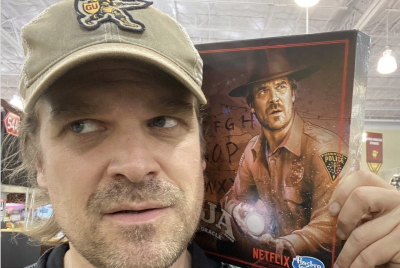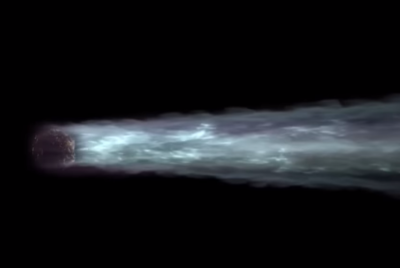Tony Nicklinson Loses Right to Die Court Challenge
Tony Nicklinson, who sufferers from an acute form of paralysis known as locked-in syndrome, has lost a high court battle for the right to end his life.
A distraught Tony, speaking through a computer, said whilst he was upset over the decision, he was hardly surprised:
"It's not the result I was hoping for but it isn't entirely unexpected. Judges, like politicians, are happiest when they can avoid confronting the real issues, and this judgement is not an exception to this rule. I believe the legal team acting on my behalf is prepared to go all the way with this, but unfortunately for me it means another year of physical discomfort and anguish as we find out who controls my life: me or the state."
Nicklinson, 58, is paralysed from the neck down following a stroke he sustained on a business trip to Athens in 2005. He can only communicate by blinking his eyes and told the court that his life was "pure torture".
Tony's wife, Jane Nicklinson, maintained that they would appeal the decision and continue the right for Tony to die.
"We're just bitterly disappointed. It was obviously not what we wanted. It's not totally unexpected, and it's not the end by any means. We've always known that whoever wins, the other side will appeal, and we will definitely be appealing."
"The judgement is incredibly one sided. The only points they seem to have addressed were the ones put forward by the opposition. All of the points that we put forward had barely been touched upon, so we definitely got grounds, well we've been told we've got grounds for appeal. It's just all the points that we put forward had really been ignored, it seems."
Nicklinson's doctors believe that he could live for another 20 years, despite the fact that he has said that he is being forced to live "a life I no longer want".
Because of his condition, Nicklinson would be unable to take lethal drugs prepared by another person, meaning his case differs from typical assisted suicide. Instead a person would have to give him the drugs, meaning they would face murder charges.
The high court decision was made by Lord Justice Toulson, who said in his summary that the cases of Nicklinson and another locked-in sufferer, who cannot be named for legal reasons, were "deeply moving".
However, he went on: "There are also other important issues to consider. A decision to allow their claims would have consequences far beyond the present cases."
The judge's decision puts the issue back in the hands of the politicians. Toulson adds: "If is not for the court to decide whether the law about assisted dying should be changed and, if so, what safeguards should be put in place.
"Under our system of government these are matters for parliament to decide, representing society as a while, after parliamentary scrutiny, and not for the court on the facts of an individual case or cases."
Written by Nicholas Edmondson






















